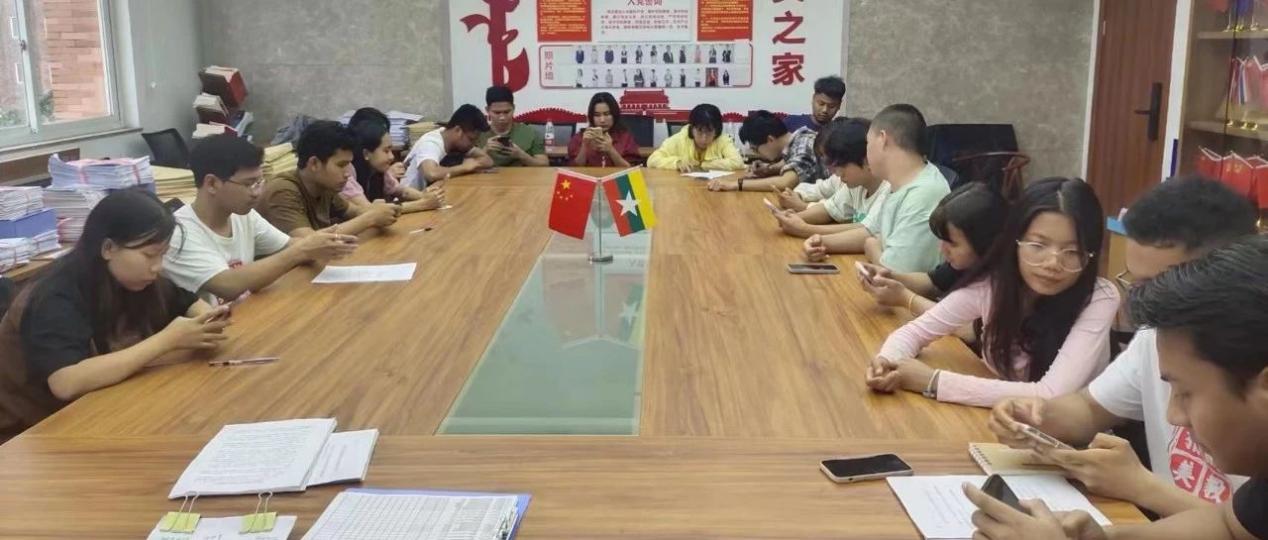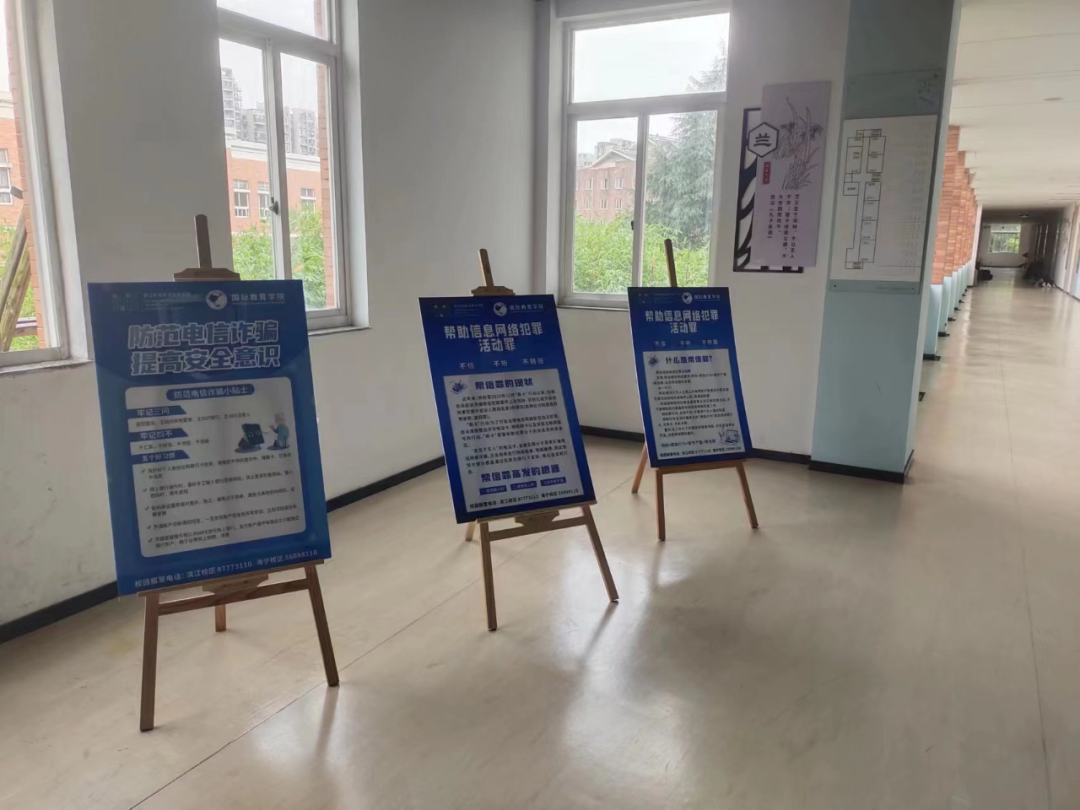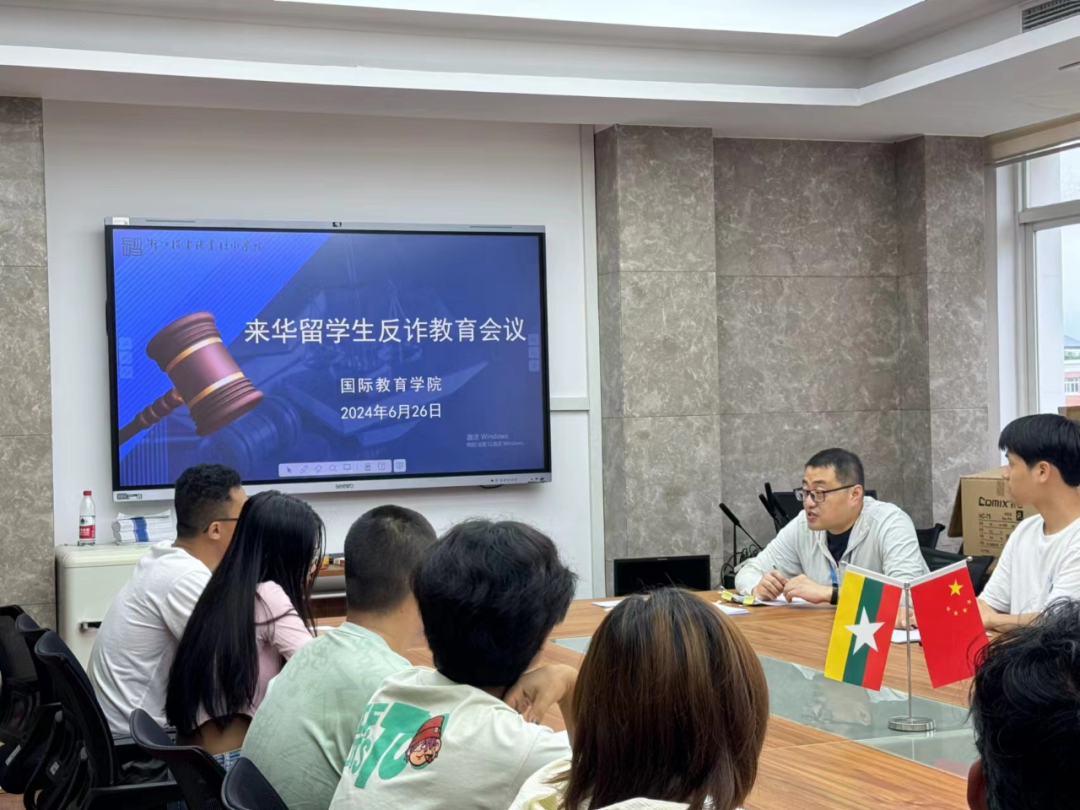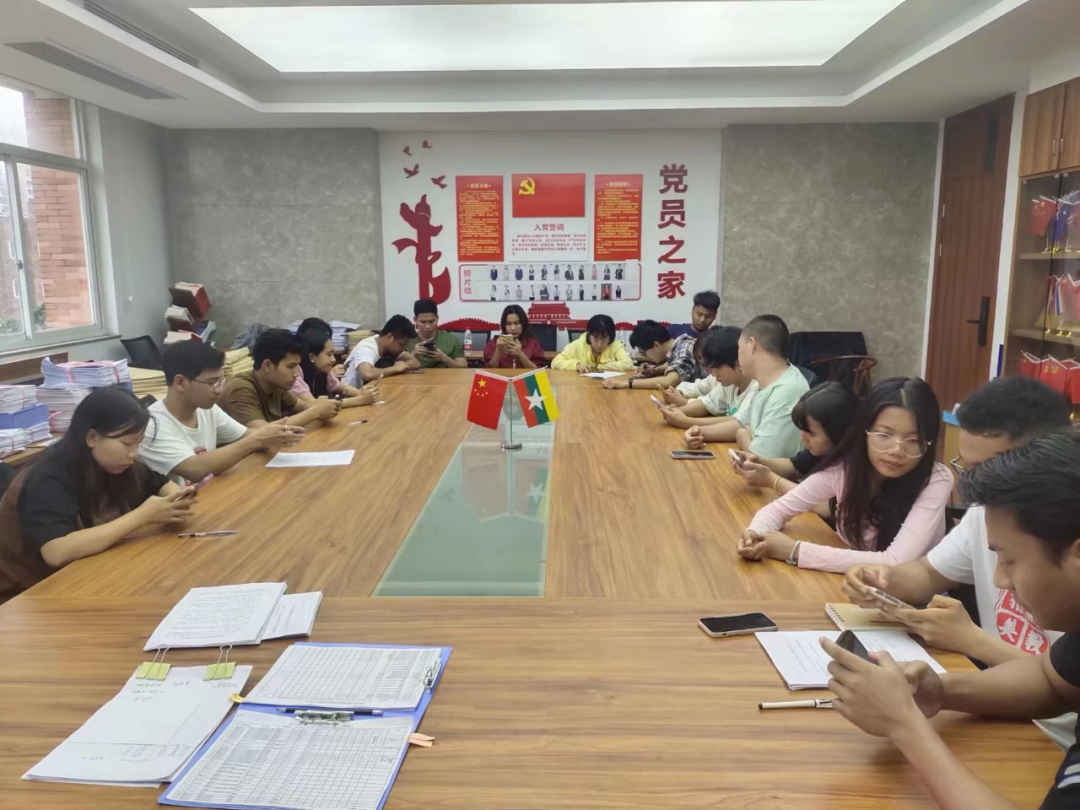
In recent years, with the increase in the number of international students coming to China, this group has gradually become a key target for telecom and internet fraudsters. To enhance international students' awareness and capability in anti-fraud, the School of International Education has carried out a series of anti-fraud publicity and education activities to help them identify fraudulent methods and protect their own rights and interests.
1. Production of Publicity Materials to Create an Anti-Fraud Atmosphere
The school has carefully produced publicity materials covering common fraudulent methods, identification techniques, and response measures. These materials are distributed in places where international students are present, such as schools, dormitories, and libraries, which can raise their attention and enable them to understand and master anti-fraud knowledge.

2. Conduct Anti-Fraud Educational Meetings to Enhance Fraud Prevention Awareness
The International Affairs Office and Student Affairs Office of the School of International Education at ZIME convened a meeting on anti-fraud education for all international students. The meeting covered topics such as what constitutes telecommunications and internet fraud, why there are victims of such fraud, and how to prevent it. Additionally, the meeting cited recent typical cases that had occurred both on and off campus, analyzed the causes and consequences, and reminded the international students to be vigilant and guard against fraud.

3.Download the "National Anti-Fraud Center" APP and Activate Early Warning Protection
The "National Anti-Fraud Center" APP is an information platform provided by the Criminal Investigation Bureau of the Ministry of Public Security. It is equipped with early warning and prevention functions, which can help international students avoid being victimized by telecommunications and internet fraud to a certain extent. If international students discover suspected fraudulent information or fall victim to fraud, they can also use this platform to report quickly or upload evidence related to the case. The latest real cases on the platform are conducive to enhancing the ability to identify telecommunications and internet fraud.


4. Sign Anti-Fraud and Anti-Scam Commitment Letters to Enhance Self-Supervision
By signing anti-fraud and anti-scam commitment letters, international students will be encouraged to build a strong “mental defense” against telecommunications and internet fraud, adhering to the principles of “not listening, not believing, and not transferring money.” This initiative aims to ensure that every student is well-versed in anti-fraud knowledge and understands the skills needed to identify scams. It is designed to create an effective firewall against telecommunications and internet fraud, preventing and eliminating such cases from occurring around them at the source. This approach also emphasizes self-supervision, self-management, and self-protection.

5. Watch the Film for an Immersive Anti-Fraud Education Experience
The film " Betrayal”, which is based on tens of thousands of real fraud cases, vividly portrays the process of telecommunications and internet fraud crimes, the harm they cause, and the difficulties in solving such cases. It shows how victims are gradually lured into the traps set by fraud gangs. By organizing a film-watching activity, international students were immersed in an anti-fraud education experience, which further enhanced their awareness of fraud prevention and counteraction.

The School of International Education will continuously innovate in the methods and approaches of publicity and education to create an environment where everyone is vigilant against and actively involved in combating fraud. We are committed to enhancing international students' awareness and capabilities in anti-fraud measures, safeguarding their healthy growth and financial security. Additionally, we will actively encourage international students to participate in anti-fraud publicity and education activities, to act as "ambassadors" for fraud prevention andanti-fraud initiatives, to build a strong "firewall" against fraud, and to strive for the creation of a "fraud-free" campus, thereby maintaining the safety and stability of the campus environment.